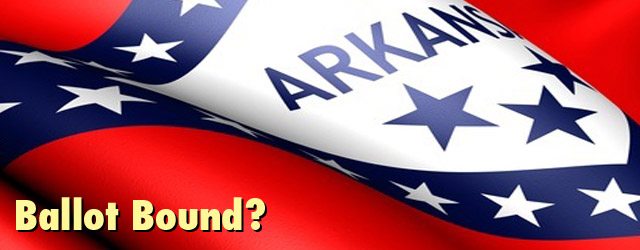Broadband Poll: Strong Support For ARE-ON Expansion (UPDATED)
by September 3, 2014 8:29 am 211 views

A statewide survey conducted last week found that a strong majority of Arkansans are persuaded by a variety of arguments to increase broadband access to K-12 schools and students.
The poll of 600 registered voters was conducted August 25-27 by Washington, D.C.-based Winston Group on behalf of FASTER Arkansas, a working group formed by Gov. Mike Beebe after education policymakers determined that most Arkansas schools did not have adequate broadband capabilities to participate in online Common Core testing or to take advantage of the internet for instructional purposes.
FASTER Arkansas is comprised of business leaders calling for the state’s public schools to connect to a university-based high-speed network called ARE-ON, a high-speed fiber optics network connecting Arkansas public colleges and universities, health care providers and others. Public schools are not allowed to connect to ARE-ON under Act 1050 of 2011, which was passed with support by the state’s telecommunications industry.
Several key poll results from the FASTER survey included:
- 69% support a proposal to amend state law to allow K-12 educational institutions to connect to “an existing high speed Internet network” through a public-private partnership. Just 19% opposed and 12% were undecided.
- 71% believe that allowing the ARE-ON expansion would level the playing field by reducing the cost of high speed Internet for school districts statewide, including rural and low income areas.
- 81% said it would increase students’ access to the Internet and would create a better educated workforce and provide more jobs.
- 61% support holding a special session to change the state law to allow the ARE-ON expansion. Roughly 34% oppose a special session and just 5% are undecided.
Last month, Gov. Mike Beebe said that the state’s public schools could tap $15 million it already spends annually on outdated copper networks along with federal funds to connect schools to a high-speed fiber optic broadband network. The existing revenue stream could generate approximately $45 million over the next three years for the broadband extension.
EducationSuperHighway, a national nonprofit that works to expand internet access in schools, has been partnering with the state Department of Education to study the issue and is working with Arkansas to expand access as part of a pilot project that also includes Virginia.
EducationSuperHighway CEO Evan Marwell said last month that Arkansas can become the first state to meet the national ConnectED goal, announced by President Obama last summer, of connecting 99% of American students to at least 100 megabits per second with a target of one gigabit per second within five years.
UPDATE: “Based on the FASTER poll, most Arkansans appreciate and understand the investment that the private providers of broadband have made and continue to make throughout this state. Unfortunately, this FASTER poll failed to realistically address the additional cost to the taxpayer in building and maintaining a government-owned network,” said Jordan Johnson, spokesperson for the Arkansas Broadband Coalition for Kids.
“The private providers of broadband have continuously indicated their willingness to work with the governor, the Department of Education, the Department of Information Systems, and others to identify and address school broadband needs. Despite our long-standing commitment, not to mention the billions of dollars the providers have already invested in broadband infrastructure to every corner of this state, some members of FASTER Arkansas remain committed to pursuing an expensive and ineffective government-run network. In fact, Arkansas school districts currently save 96% on their broadband costs when they purchase the service from a provider rather than purchasing it from the state.,” Johnson added.
Jerry Jones, chair of FASTER Arkansas, offered this statement on the poll.
“The poll results are objective confirmation that the people of Arkansas agree that having high-speed broadband internet in our schools is critically important to improving the quality of education, workforce and economic development. .. every bit as important as getting electricity across our state in the 1930s,” Jones said.
“Arkansans “get it’ and recognize that if high speed broadband internet access is not available to every public school student in our state we are putting ourselves at a disadvantage. An overwhelming majority of Arkansans are saying it is unacceptable that only half of our schools are meeting the internet needs of our students.
“The people of Arkansas are clearly in favor of changing ACT 1050, this poll and the town halls we have held across the state show this, the Governor has been clear on what needs to be done and the Legislative committees have been focused as well. It is now time to move forward, I would hope that our Legislative leaders and the Governor would rapidly come together in a Special Session and remove the impediments that prevent our public schools from having the option to connect to an existing taxpayer-funded high speed internet network,” said Jones.
